Special Report
The 13 Leading Republican Presidential Candidates for 2024
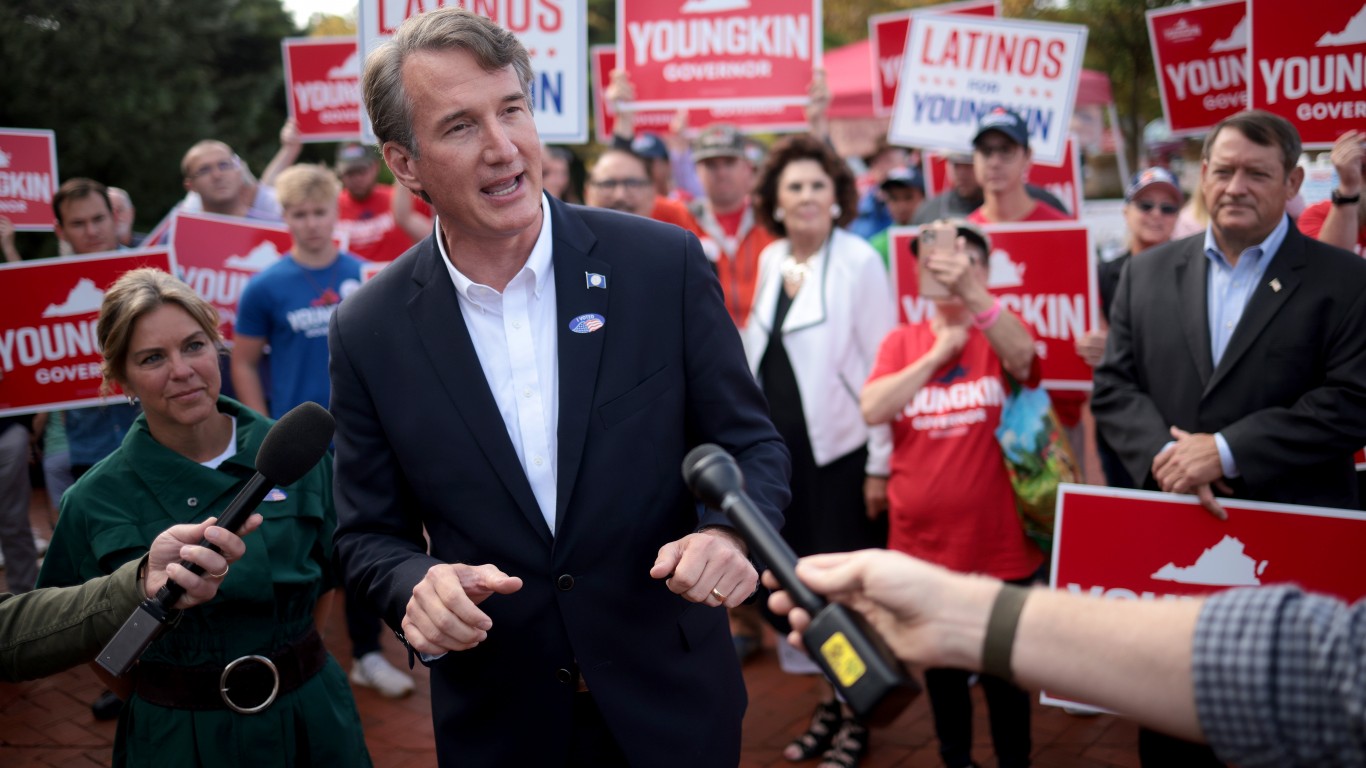
Published:

With the midterm elections concluded, the political parties are training their sites on the 2024 presidential race and who the possible contenders might be. Typically the party that does not occupy the White House has a stable of candidates, and the way things are shaping up, the Republican Party will have a host of hopefuls in 2024.
24/7 Wall St. referenced recent political polls, Las Vegas odds, and statements made by potential candidates about their intentions to run to list 13 of the leading candidates for the Republican nomination for president in 2024. These candidates are listed in alphabetical order. (Also see, the people who gave 10 million or more to candidates in the 2022 midterms.)
Some of the possible Republican candidates for 2024 have run for president before – Florida Sen. Marco Rubio, Texas Sen. Ted Cruz, Utah Sen. Mitt Romney, former New Jersey Gov. Chris Christie, and of course, former President Donald Trump.
They might be joined by candidates with ties to the former Trump administration: Former Vice President Mike Pence, ex-Secretary of State Mike Pompeo, and former U.S. ambassador to the U.N. Nikki Haley.
Florida Gov. Ron DeSantis and Texas Gov. Glenn Abbott, each coming off massive reelection victories, might also be looking to change their address to 1600 Pennsylvania Avenue. Glenn Youngkin, who won the gubernatorial race in Virginia last year, might leverage his newly minted national stature to make a run for the White House.
Then there are the longest of longshots. Wyoming Rep. Liz Cheney, the vice chair for the House Select Committee to Investigate the January 6th Attack on the United States Capitol, who has made no secret of her disdain for Trump, has expressed interest in running. Fox News host and provocateur Tucker Carlson might test the presidential waters. (Here are some athletes who went on to become politicians.)
Click here to see the 13 leading republican presidential candidates for 2024.
1. Greg Abbott
> Served/serves as: Governor of Texas
Greg Abbott has been governor of Texas since 2015. His personal story is one of overcoming physical setbacks. Abbott has been in a wheelchair since1984 after sustaining an injury when an oak tree fell on his back and paralyzed him.
Unlike DeSantis, whose triumph in Florida is an indication of a reddening of the political landscape in that state, Abbott has been governor of the nation’s second-most populous state and among the most reliable GOP states in the country. He routed former Rep. Beto O’Rourke on Tuesday.
Though not a firebrand like Trump or DeSantis, Abbott has made his political bones by leveling harsh criticism against the Biden Administration about its handling of the immigration issue. He announced plans earlier this year for a crowdfunded border wall to be infused with $250 million from the state budget.
Abbott is keeping his presidential plans close to the vest. A Washington Examiner story in May ahead of the primaries said Abbott’s support of many liberal candidates suggested he may be trying to lessen his conservative reputation ahead of a possible presidential run. A Newsweek article in June said Andrew Hemming, who did research for the 2016 Trump campaign, moved to Texas and had been consulting on Abbott’s reelection campaign.
[in-text-ad]
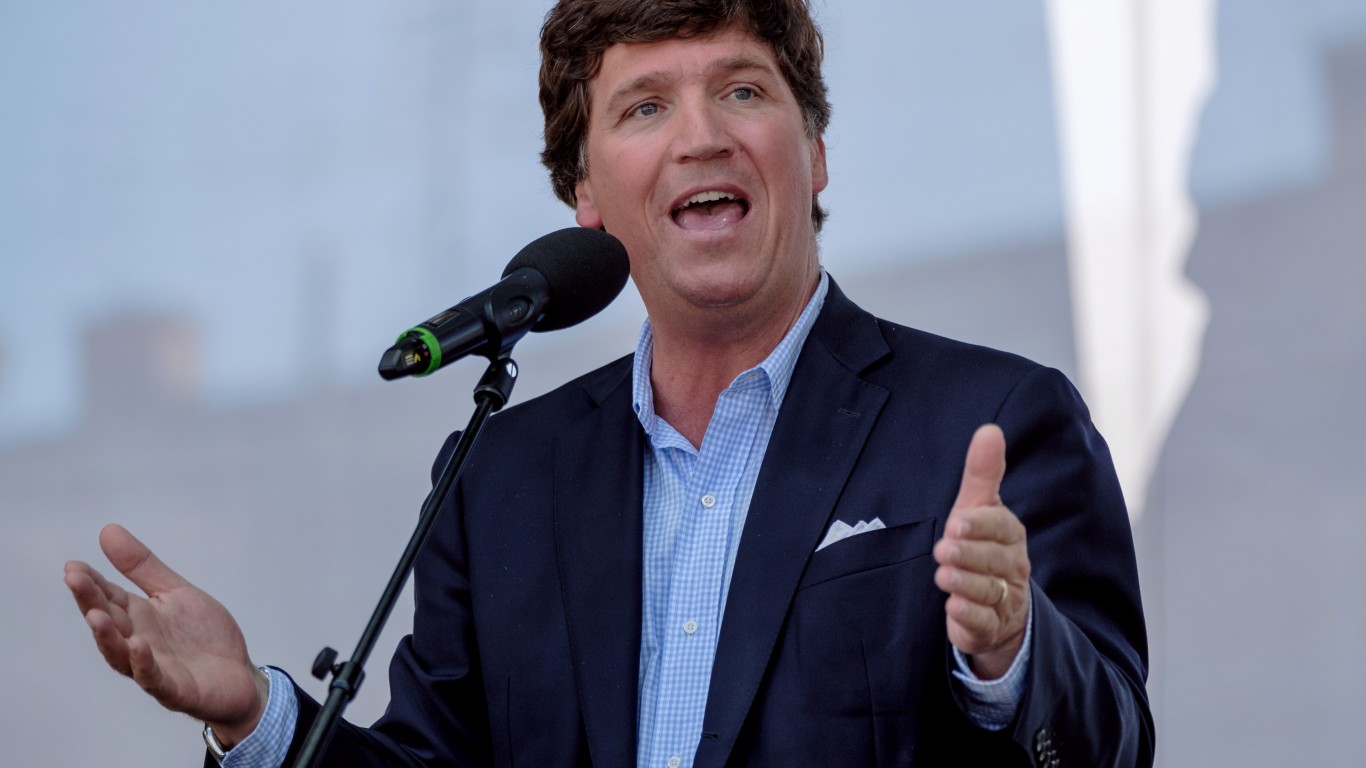
2. Tucker Carlson
> Served/serves as: Fox News host
The Fox News host and conservative influencer, Tucker Carlson has been discussed as a potential candidate who might make the switch to politics. Carlson, whose nightly program “Tucker Carlson Today,” draws more than 3.2 million viewers, has name recognition and an established fanbase. Political oddsmakers rate his chances to run for president as very long. There has been no official word from his camp to indicate a presidential run in 2024.

3. Liz Cheney
> Served/serves as: US congressional representative from Wyoming
Liz Cheney, daughter of former Vice President Dick Cheney, was first elected to the House of Representatives from Wyoming in 2016. She serves as the vice chair for the House Select Committee to Investigate the January 6th Attack on the United States Capitol. In that capacity, Cheney has drawn the ire of Republicans because of her pointed criticism of Trump. That led to her landslide loss in the GOP House primary in August. During her concession speech, Cheney said “I will do whatever it takes to keep Trump from the Oval Office.”
Cheney, who also sits on the House Armed Services Committee, has taken conservative positions on job creation, reducing taxes and regulations, and bolstering America’s armed forces. She is considered to be knowledgeable in foreign policy and national security. While a GOP candidacy for president in 2024 is among the longest of shots, it is possible she could run as an independent.

4. Chris Christie
> Served/serves as: Former governor of New Jersey
The former governor of New Jersey ran for president in 2016 but was hobbled by a scandal involving staff members who fabricated a construction snafu at the George Washington Bridge to embarrass a Democratic mayor in the town of Fort Lee.
During a 2016 GOP campaign debate, Christie took a shot at Sen. Marco Rubio for being an overly scripted candidate lacking in executive experience. Christie was seemingly rewarded by Trump for weakening a GOP opponent and became a Trump ally. He had hoped to be offered the vice presidency or the attorney general spot after Trump won but did not get an offer.
The amicable relationship started to fray in 2020 when Christie became more critical of Trump’s presidency. He recently chided Trump for keeping classified documents at his Florida residence as “trophies” from his presidency.
It is not known what Christie’s presidential plans are for 2024. He has kept a low profile since running for president.
[in-text-ad-2]
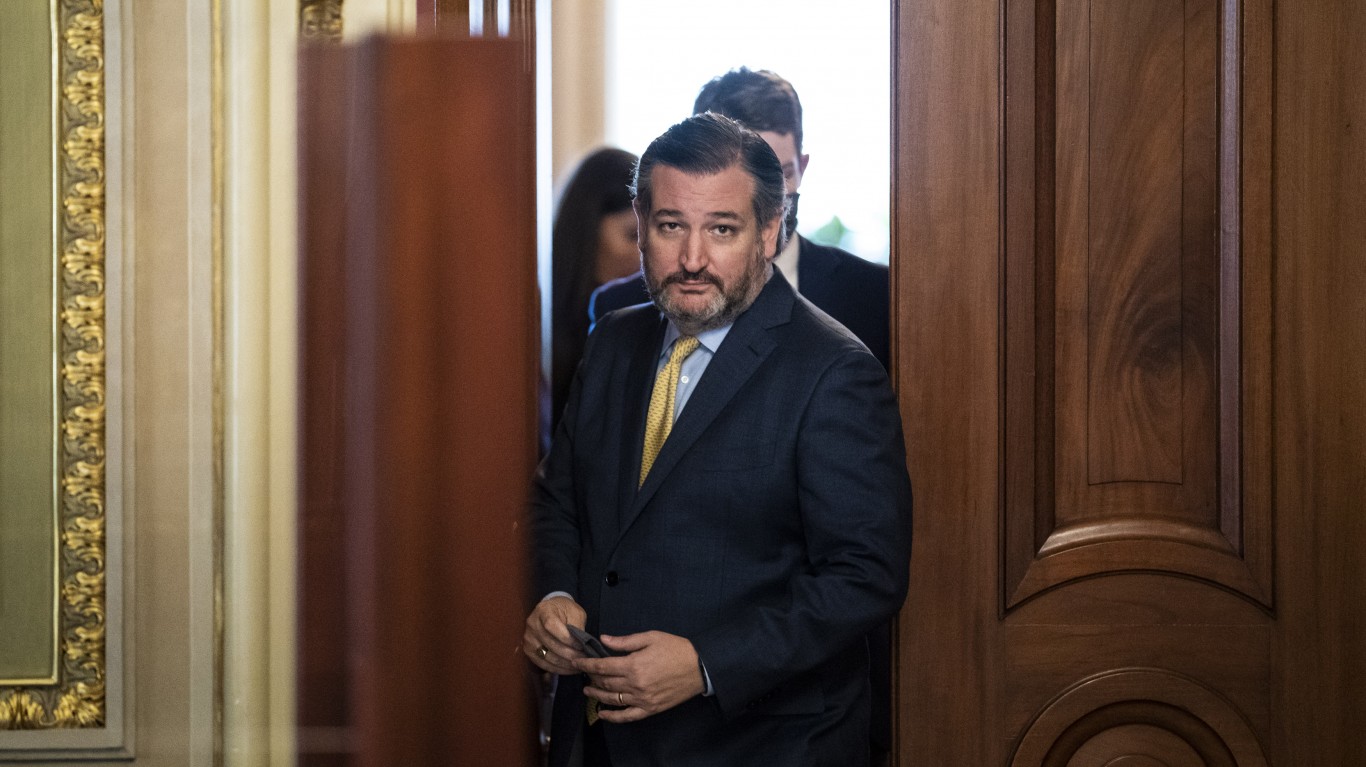
5. Ted Cruz
> Served/serves as: US senator from Texas
Sen. Ted Cruz from Texas ran for president in 2016 and was a serious rival to Trump six years ago. It was a bruising battle, and Cruz refused to endorse Trump at the Republican National Convention after the maverick mogul won the nomination.
The two patched things up after the election, though Cruz on a recent podcast criticized Trump for not spending more from his $100 million war chest to help GOP candidates. Cruz has suggested that he could run for president again in 2024.
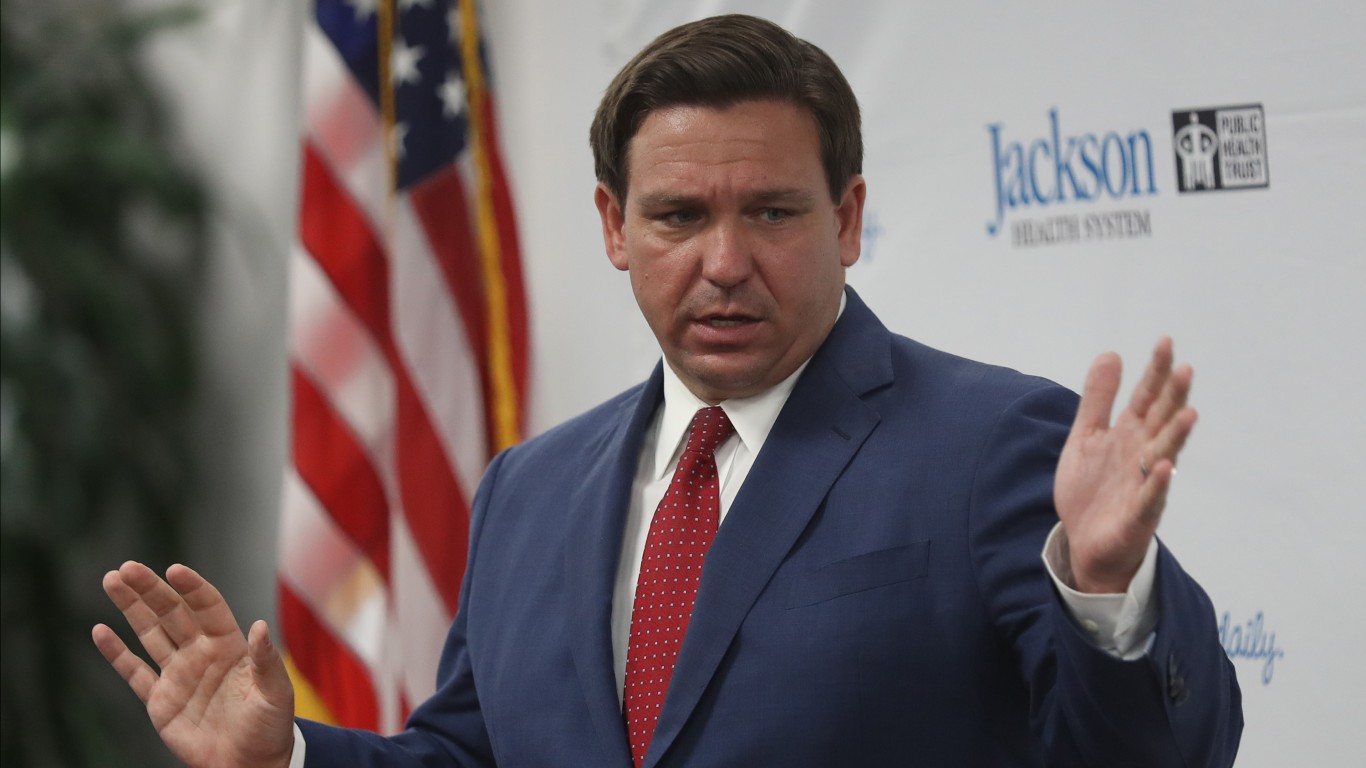
6. Ron DeSantis
> Served/serves as: Governor of Florida
Florida Gov. Ron DeSantis rode to a historic victory on Election Day by defeating Democratic opponent Charlie Crist by almost 20 points. Even before his huge triumph on Nov. 8, DeSantis was considered one of the frontrunners for the GOP nomination by political handicappers.
Conservative voters like the combative Florida governor for confronting the media, keeping Florida open during the pandemic, and taking on corporations that criticized measures he took to shield Florida students from liberal indoctrination.
DeSantis won the governorship in 2018 buoyed by an endorsement from then-President Trump. Trump regards DeSantis as a rival for the 2024 nomination and recently sarcastically referred to the Florida governor as “Ron DeSanctimonious.”
[in-text-ad]
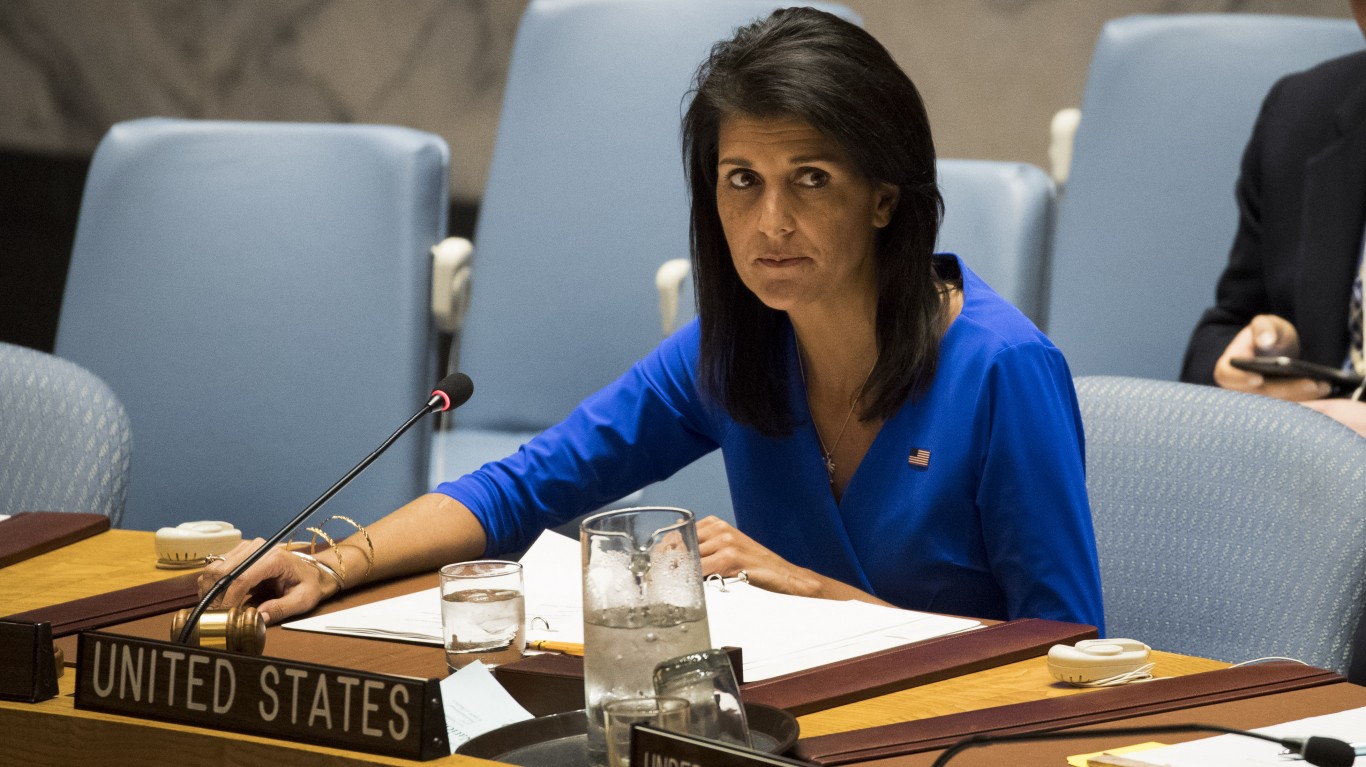
7. Nikki Haley
> Served/serves as: Former governor of South Carolina, US ambassador to UN
Nikki Haley, daughter of Sikh immigrants from India, was the first female governor of South Carolina and also represented the state in the House of Representatives. Haley has never lost a political race. She served as ambassador to the UN under Trump for almost two years. Haley was openly critical of Trump in a meeting with the Republican National Committee following the Jan. 6 riot at the Capitol. That criticism was not well received by some in the party and might hurt her if she chooses to run.
Haley said on the “Today Show” in early October that her decision to run depends on what her former boss does. “We’ll see if he runs,” said Haley. Haley said that she and her husband would discuss their plans at the beginning of next year. As a woman of Sikh descent, Haley is seen as representative of a new, more inclusive GOP.
8. Mike Pence
> Served/serves as: Former vice president of the United States, former Indiana governor
Given the amount of speeches he’s been making and his support for GOP candidates in the midterms, it is a good bet that Mike Pence, Trump’s former vice president, will run in 2024. The problem for the former Indiana governor is his unwillingness as vice president to try and overturn the 2020 election results, which angered pro-Trump supporters in the Republican Party.
In an op-ed piece he wrote for the Wall Street Journal, Pence said he backed discussion of reported irregularities during the 2020 election, but he claimed that he told Trump that he would not overturn the election. And even though his position to uphold the results was admired by many within his own party, it is unlikely to boost his candidacy. According to The Hill, in a YouGov-University of Massachusetts poll in October, Pence got 6%.

9. Mike Pompeo
> Served/serves as: Former secretary of state
Serving as secretary of state has been a springboard for becoming president of the U.S., particularly in the early days of the Republic. Hillary Clinton was the most recent former secretary of state to have run for president in 2016. Mike Pompeo, who was secretary of state under Trump, has been quite frank about his own presidential aspirations.
“We’ve got a team in Iowa, a team in New Hampshire, and South Carolina. And that’s not random. We are doing the things one would do to get ready,” he said at a September event in Chicago, according to a story in The Hill.
Pompeo has augmented his name recognition by appearing frequently on Fox News and conservative media, taking potshots at the Biden administration on its handling of foreign policy. Whether he has the charisma and base in the GOP to make a bonafide run for president is an open question.
[in-text-ad-2]

10. Mitt Romney
> Served/serves as: US senator from Utah, former governor of Massachusetts
Utah Sen. Mitt Romney has plenty of executive experience as co-founder of investment firm Bain Capital, leader of the 2002 Salt Lake Organizing Committee for the Winter Olympics, and former governor of Massachusetts. Romney ran for president in 2008 and again in 2012, when he got the nomination but lost to President Barack Obama. He became Utah senator in 2019.
Romney ran afoul with much of the Republican Party establishment for his opposition to Trump during his campaign for president in 2016. In 2020, he voted to impeach Trump, becoming the first senator to vote for the removal of a president from his own party. The animus from this episode makes Romney a very long shot to gain the 2024 presidential nomination.
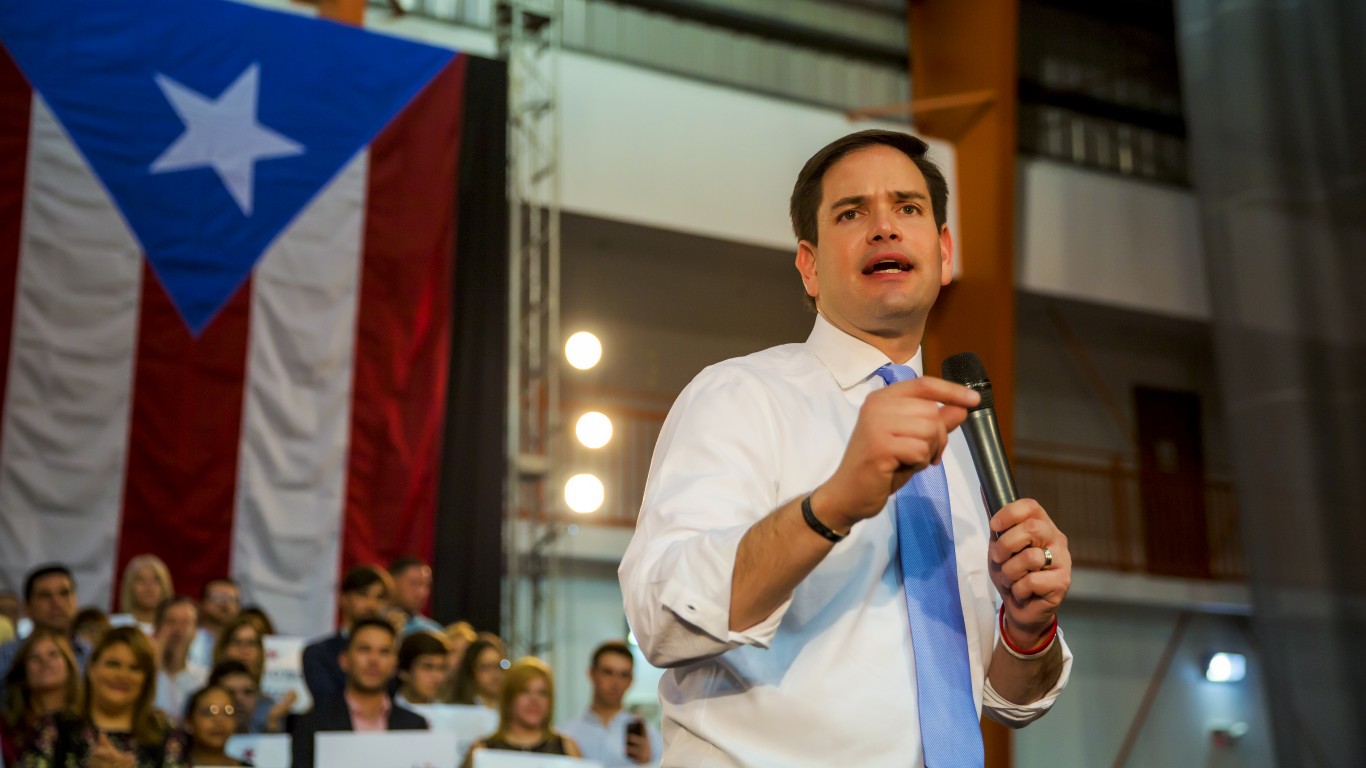
11. Marco Rubio
> Served/serves as: US senator from Florida
Marco Rubio won a third term as senator from Florida on Nov. 8, wiping out Democratic challenger Val Demings by more than 16 percentage points. He is the first Florida Republican to win three terms in the Senate. Rubio, who was backed by the Tea Party when he first ran for senator in 2010, is Florida’s longest-serving Hispanic statewide elected official and a symbol of the GOP’s expanding reach among Latino voters.
Rubio, the son of Cuban immigrants, ran for president in 2016. Though he had contentious exchanges with candidate Trump during the primaries, during Trump’s presidency he often acted as a top adviser to the chief executive. Rubio has had influence on America’s Latin American policy as the vice chair of the Foreign Relations subcommittee on the Western Hemisphere. Trump and Rubio have become close, and the former president held a rally on Rubio’s behalf during the recent senatorial campaign. If Trump runs, it is unlikely Rubio will challenge him.
[in-text-ad]
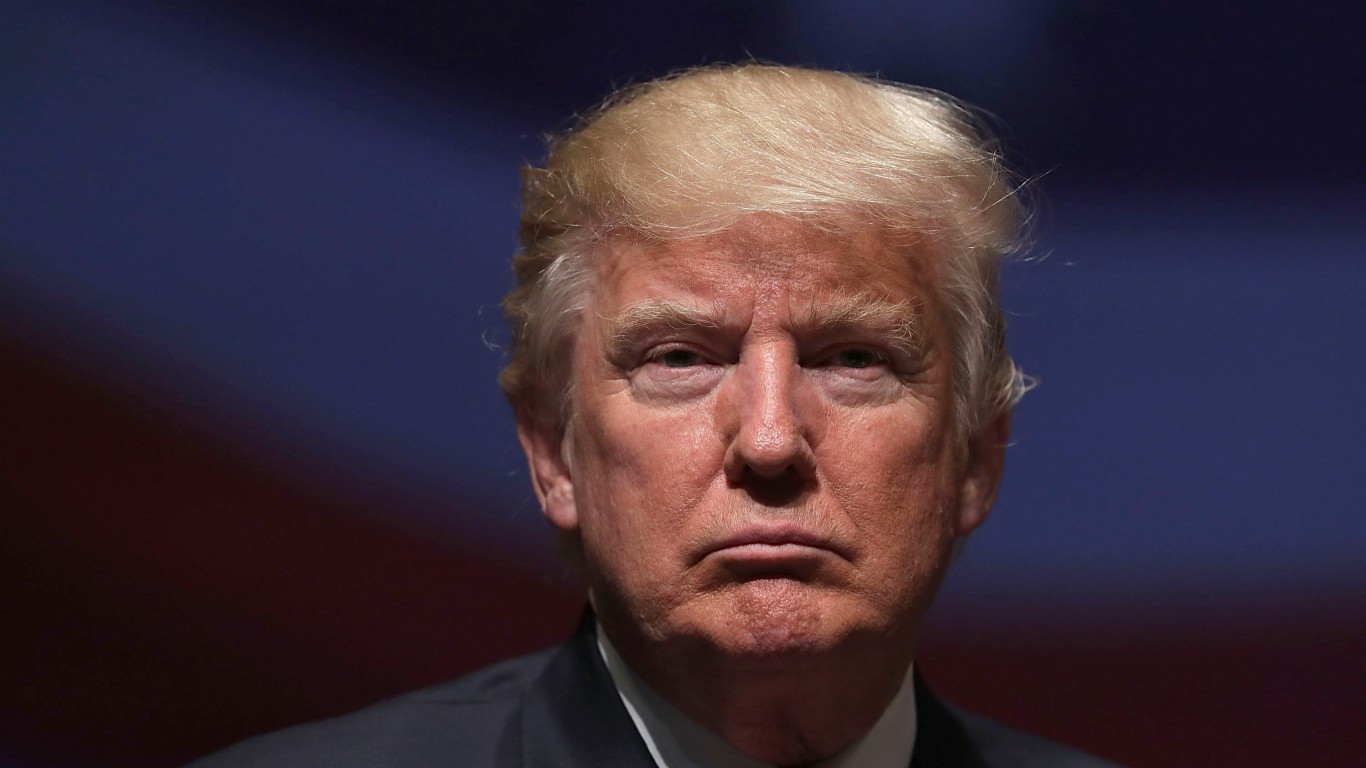
12. Donald Trump
> Served/serves as: Former president of the United States
Though Donald Trump was not on the ballot in 2022, the former president made sure his presence was felt with his endorsement of candidates across the country. Some Trump-backed candidates such as J.D. Vance won in increasingly red-state Ohio, but Trump’s imprimatur was not enough to get gubernatorial hopeful Doug Mastriano and Senate candidate Mehmet Oz across the finish line in Pennsylvania. Tudor Dixon, Trump’s pick in the Michigan governor’s race, failed to unseat Gov. Gretchen Whitmer.
Trump continues to have a strong hold on the GOP and must still be considered his party’s frontrunner if he decides to throw his hat in the ring. It is believed that he will announce a third run for president after the midterm elections are over. Certainly political oddsmakers think he will run and could win the candidacy. But there is increasing chatter in the political class that Trump has become an obstacle for the party and is too polarizing to win a general election. And Ron DeSantis’ strong performance in Florida has catapulted him to the front.

13. Glenn Youngkin
> Served/serves as: Governor of Virginia
Glenn Youngkin has made a meteoric rise to the short list of possible GOP presidential candidates after his gubernatorial victory in Virginia in 2021. Youngkin gained national attention by knocking off Democrat and former Virginia Gov. Terry McAuliffe in a state that Joe Biden won by 10 percentage points a year earlier.
Youngkin won by walking a political tightrope. He did not fully embrace former president Trump, but did not eschew him either. His main campaign issue was his emphasis on parental rights in education.
There is some question about the length of Youngkin’s coattails. Out of three GOP candidates for House races in Virginia, only one – state Sen. Jen Kiggans – triumphed. University of Virginia pollster Larry Sabato told the Washington Post that “Youngkin is at zero percent in the presidential polls, and his bandwagon has barely moved.”
Are you ahead, or behind on retirement? For families with more than $500,000 saved for retirement, finding a financial advisor who puts your interest first can be the difference, and today it’s easier than ever. SmartAsset’s free tool matches you with up to three fiduciary financial advisors who serve your area in minutes. Each advisor has been carefully vetted and must act in your best interests. Start your search now.
If you’ve saved and built a substantial nest egg for you and your family, don’t delay; get started right here and help your retirement dreams become a retirement reality.
Thank you for reading! Have some feedback for us?
Contact the 24/7 Wall St. editorial team.